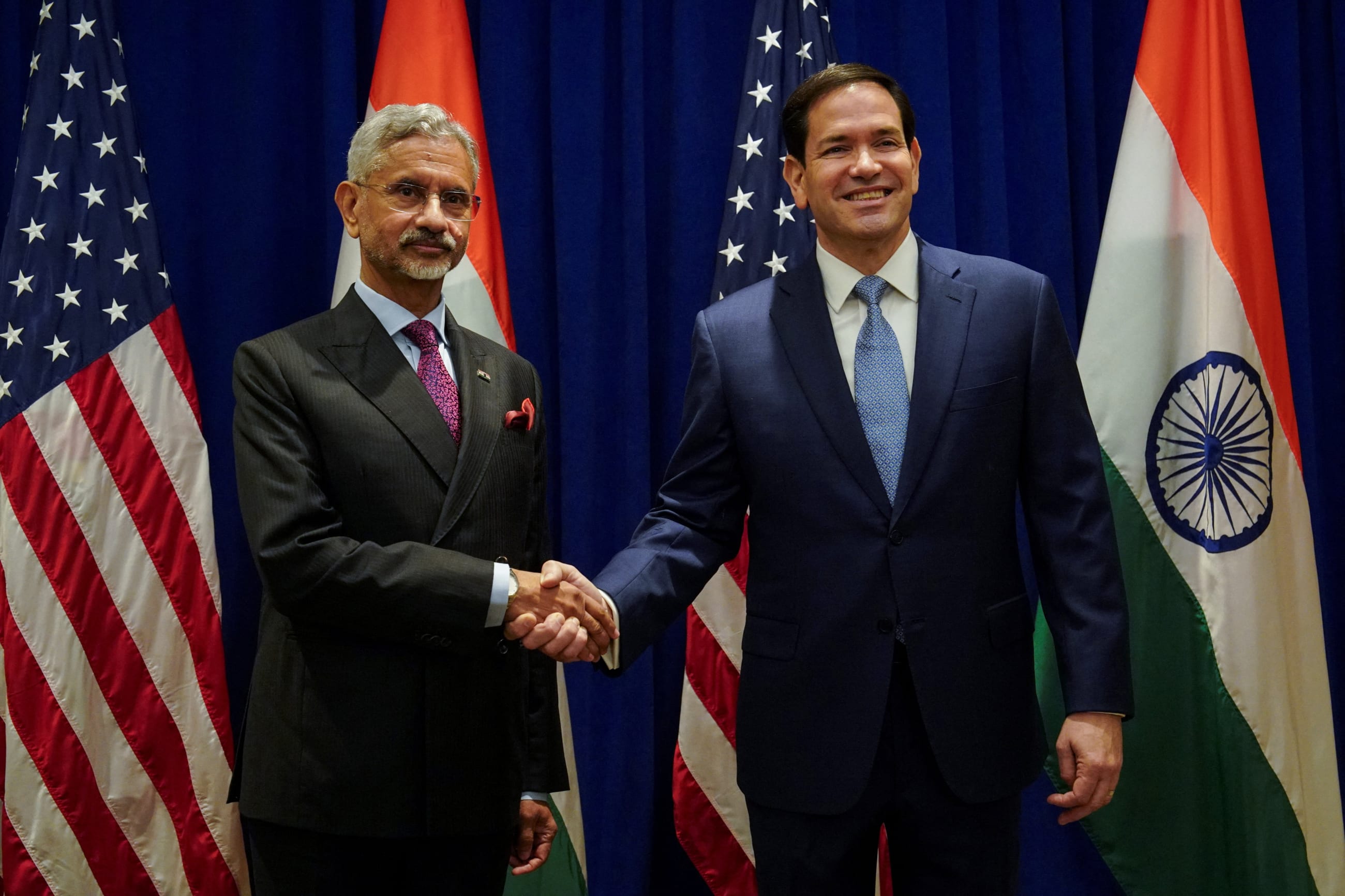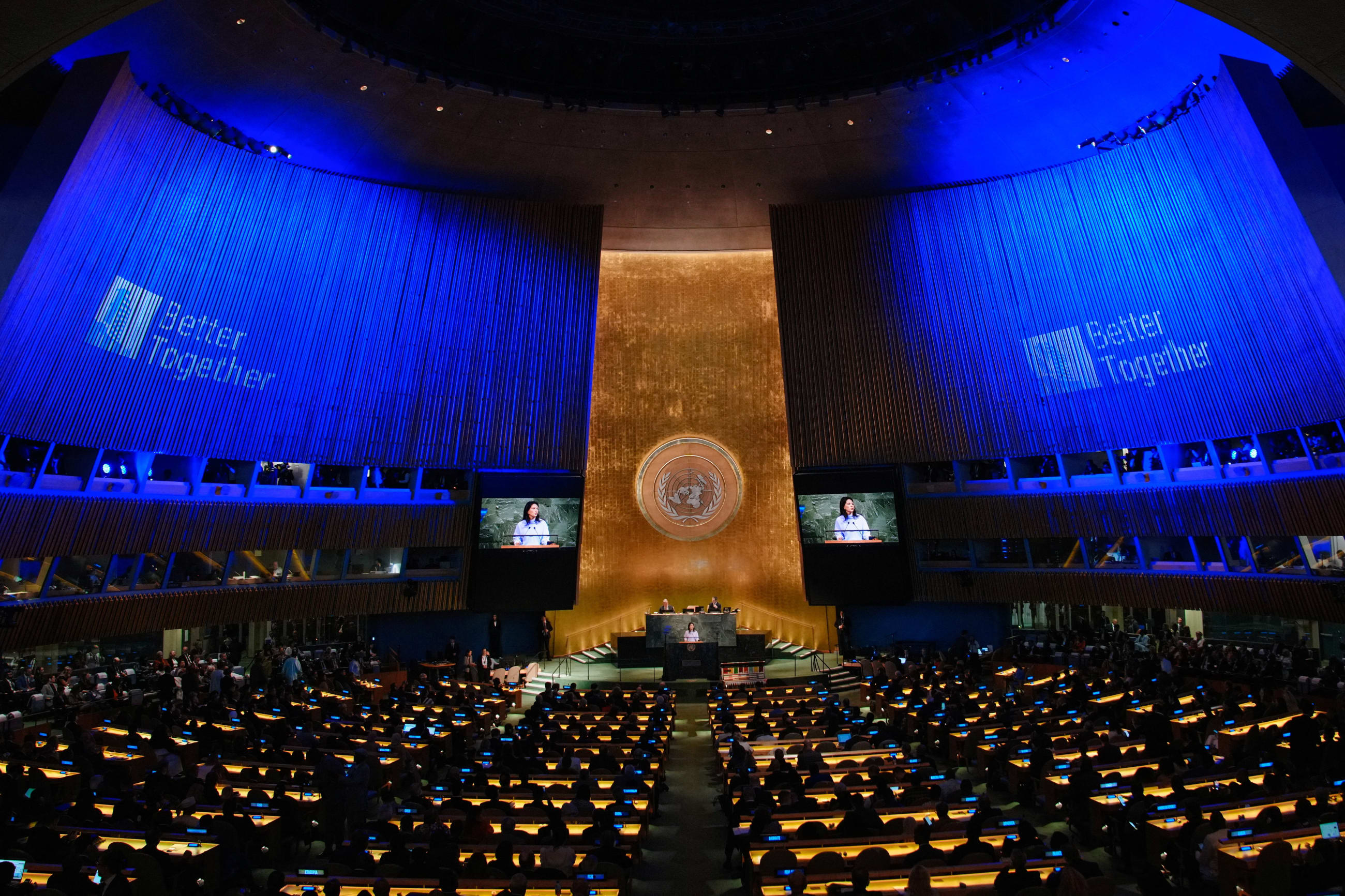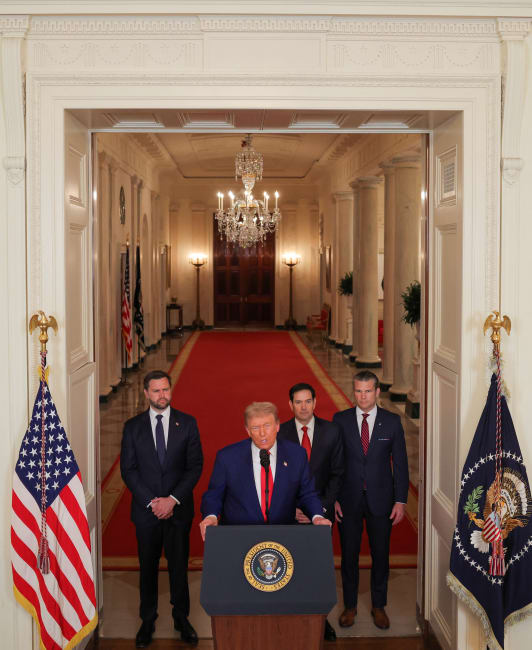This week, President Donald Trump will address the UN General Assembly (UNGA) as world leaders gather in New York City to discuss how multilateral cooperation can help slow the rising number of premature deaths from cancer, cardiovascular diseases, and diabetes as well as how to manage the health-related risks and opportunities posed by artificial intelligence.
According a U.S. State Department communiqué, Washington's messages to its multilateral partners will be, first, that the United States has shouldered the burden for health and humanitarian assistance for decades and that it is "imperative for other donors to step up," and, second, that UN agencies must improve efficiencies, eliminate redundancies, and reduce staff costs. The recently released America First Global Health Strategy calls for the U.S. government to negotiate bilateral agreements on global health, circumventing multinational institutions and nongovernmental organizations. As if to reinforce the point, the Trump administration will reportedly launch those bilateral negotiations this week while at the UNGA.
This messaging builds on a broader U.S. retreat on multilateralism in global health under Trump. In May 2025, the World Health Assembly (WHA) convened for the first time without the United States following the Trump administration's renewed withdrawal from the World Health Organization (WHO). Previously, the United States was responsible for roughly 20% of the WHO's budget and provided more than 12% of experts to WHO committees and programs. The withdrawal created a $600 million shortfall to this year's WHO annual budget, which will grow to $1.5 billion next year. Consequent restructuring to the WHO projects a 28% staff cut, from 900,000 to 700,000, reducing the number of program divisions from 10 to four and shrinking the leadership team from 11 to six.
Previously, the United States was responsible for roughly 20% of the WHO's budget and provided more than 12% of experts to WHO committees and programs
The discontinuance of U.S. support for global health multilateralism goes beyond the WHO. The Trump administration's recent rescission package removed funding to the Pan American Health Organization (the oldest international health agency), the United Nations Children's Fund (UNICEF), and the Joint United Nations Program on HIV/AIDS (UNAIDS). Earlier this year, the United States stopped funding Gavi, a global health initiative that manages a multilateral partnership on vaccination; U.S. leaders also announced that the country would neither adopt the new amendments to the International Health Regulations nor sign the Pandemic Treaty, both international legal instruments designed to promote a more equitable response when countries confront the next global outbreak.
Aspects of the U.S. retreat from global health multilateralism have spread internationally. Following the Trump administration's decision to exit the WHO, Argentina announced a similar withdrawal from the organization in February; Hungary, Israel, and Russia also declared their intentions to explore an exit. After the U.S. cuts in its official development assistance, France, Germany, and the Netherlands have since announced cuts in their foreign assistance budgets, citing competing demands for increased defense spending amid ongoing Russian aggression in Ukraine. In May, China sent the largest assembly to the WHA to date, but the country nevertheless pushed back on increased membership dues and changes in health programs.
At the height of the COVID-19 pandemic, as nations scrambled against the economic, social, and health harms of a dangerous disease that knew no national boundaries, many observers would have been surprised to learn that, just a few years later, the response by the United States and others would be to scale back multilateral cooperation on global health. Yet this broader pullback reflects a deepening dissatisfaction, shared by traditional donor nations and long-time aid recipients alike, with how global health governance performed during that crisis and with the long-time dependencies and vulnerabilities that the global system has failed to resolve.
A striking outcome in the wake of the dissolution of the U.S. Agency for International Development has been the muted response from the agency's biggest recipients: African leaders. The lack of political outcry in part underscores enduring ambivalence about the operation of foreign assistance. Global health leaders sought to address that dissatisfaction in Pandemic Treaty negotiations that concluded this past spring with a hard-won agreement, but much of the deal remains unfinalized.
The story of multilateral cooperation, however, is not over. Even without U.S. support this year, Gavi has secured more than $9 billion of its $11.9 billion pledging goal, drawing commitments from a record number of donors for the next five years. The United States has not withdrawn its support for the Global Fund to Fight AIDS, Tuberculosis, and Malaria, and a November replenishment round will determine the depth of support from the United States and other nations. Even the America First Global Health strategy acknowledges that the Trump administration will need to continue to engage in multilateral relationships for "specific, targeted, and limited" purposes.
The UNGA is an opportunity for governments to critically shape what comes next for global health multilateralism and to find whatever common ground still exists. COVID-19 revealed the weaknesses of the current international system. The strategic drivers that once underpinned many global health programs two decades ago—such as stabilizing fragile states, countering terrorism, and the post–Cold War embrace of globalization—have also largely receded from foreign policy and domestic agendas, replaced with concerns about stagnant economies, polarization at home, and intensifying geopolitical conflicts abroad.
What the future holds depends on how global health policymakers, from Europe to the Global South, choose to react to this new landscape.













